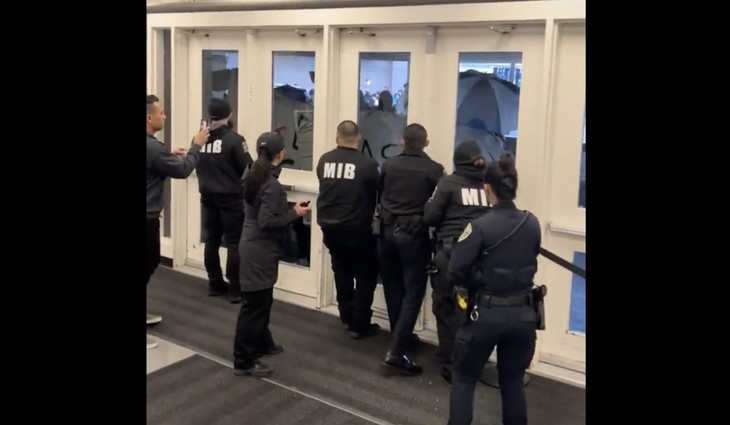A tangerine is an orange citrus fruit, not all orange citrus fruits are tangerines.
Are you objecting to the idea that the police is a group of people who work together to try and achieve a socio-political goal? Or are you objecting to my usage of your definition in ways you haven't anticipated/does not conform to your political worldview?
Rather than quibbling, I'm just going to use the term in the standard sense:
Political movement - Wikipedia
This entire conversation is about nothing but quibbling over definitions. If that's not up your alley, then I question your judgement in joining it in the first place.
Well it's not the only mistake you've made in this thread

I take it that you are not going to elaborate on your train of thought, then.
What exactly is the point of this debate again?
This is a fallacious argument as it shifts the unit from a movement to individuals.
No, it is
exactly the argument you have used to identify Antifa as an organised movement with common goals.
Someone commits violence in the name of Antifa, therefore Antifa is an organised political movement that orchestrates violence to further its political goal.
Someone commits violence in the name of Islam, therefore Islam is an organised political movement that orchestrates violence to further its political goal.
A police officer commits violence in the name of Law and order, therefore the police is an organised political movement that orchestrates violence to further its political goal.
It is the same as linking terrorism to the Salafi-jihadist movement, not individual Muslims.
Many groups within this movement are mortal enemies, this doesn't change the fact it is a recognisable movement with commonalities that link the disparate groups.
If you can say Salafi-jihadist terrorism, you can say Antifa violence.
How does your premise that all Salafi jihadist movements are working together to further a common political goal square with your assessment that "many groups within this movement are mortal enemies"? That's a rather contradictory argument to make.
Not all political movements are 'unified'.
They have to be unified
to a degree in order to satisfy your definition:
a group/groups of people who work together to try and achieve a socio-political goal.
By what criteria is the 'alt-right' be a movement, yet Antifa is not?
Well, first of all, unlike Antifa, the "alt right"
actually shares a common ideology, organisational structures, personnel, and funding across national borders.
Secondly, it is made up of actual political organisations that are trying to achieve explicit political goals, rather than simply constituting a reaction to the presence of their political enemies as Antifa does.
Then you are missing the point: that you are creating pedantic and arbitrary distinctions that make meaningful discussion of the issue more difficult.
But that's just, like, your opinion, man.
Some people mistake pedantry for nuance and accuracy. It is worst when the pedantry is mistaken.
You are attempting to redefine a word in a manner that is not consistent with its scholarly, historical or popular usages and insisting that everyone else is wrong to use the term in its standard manner.
I am not redefining anything.
For such an attempt to be valid it must offer a significant clarification over the previous usage, whereas yours simply obfuscates and necessitates cascading waves of pedantry and subjective nitpicking before one can even begin to address the topic in a common language.
Are you done with the insults? Got it all out of your system?
A quick sample of the term being used in an academic context, not simply 'misused' by ignorant people as you claim is the case:
[...]
The evidence says otherwise.
AFA started off as a wing of the German communist party. This is clearly not simply a "principle".
You have hundreds of groups worldwide using the name Antifa that share many of the same goals, use similar insignia, organise conferences and offer cooperation and support with this network and try to encourage increasing number of people to join them.
Yet referring to any of them as Antifa is "wrong" simply because you say so?
None of the articles you quote discuss the nature of Antifa, or how or why it is a political movement or organisation, they simply assume that it is without any further examination of that premise.
Also, did you miss entirely that one your own sources says in its abstract that "
[d]epending on local contexts and politics, antifa can variously be described as a kind of ideology, an identity, a tendency or milieu, or an activity of self-defense."
I would have been prepared to discuss the subject further, but since you already mentioned that you intensely dislike these kinds of "quibbles" and consider my entire argument to be nothing more than arbitrary pedantery, I question how productive such a discussion is going to be.




